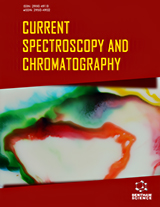Abstract
Background: Cannabis is the most widely used illicit drug in the United States and Europe. In recent years, a range of new substances with cannabis-like effects-known as synthetic cannabinoids (SCs) have become popular as drugs of abuse. The use of synthetic cannabinoids and related products has been related to adverse effects including high blood pressure, breathing trouble, hallucinations, paranoia, tachycardia and acute kidney injury.
Methods: A rapid, specific, sensitive and validated high-performance liquid chromatography (HPLC) method was developed for the determination of 5F-PB-22 in mouse plasma, for the first time, with its application to pharmacokinetic study. Chromatographies separation of 5F-PB-22 and crizotinib (IS) was performed on Water Symmetry C18 analytical column (100 Å, 150 mm x 3.9 mm, 5 µ m) maintained at ambient temperature. The mobile phase consisted of acetonitrile: 0.1% triethylamine (pH 7.0) (60:40, v/v) pumped at a flow rate of 1.0 ml min-1 with run time of 6 min. The analytes were detected at 230 nm. 5F-PB-22 and the IS were extracted from mouse plasma using the deproteinisation procedure, followed by injection of an aliquot of the supernatant into the chromatography system. Results: The results showed a linear calibration curve in the range of 5-1000 ng mL-1 (r2 = 0.9996) with a lower limit of detection (LOD) of 1.5 ng mL-1 in plasma. Precision and accuracy analysis showed acceptable coefficients of variation and relative error, fulfilling the criteria normally accepted in bioanalytical method validation. Conclusion: The proposed method proved to be suitable for screening of 5F-PB-22 in plasma samples, proving to be sensitive and presenting appropriate selectivity and sensitivity, allowing detection of a nano-concentration range of the analyte. The assay was successfully applied in a pharmacokinetic study.Keywords: 5F-PB-22, liquid chromatography, mice plasma, pharmacokinetic study, synthetic cannabinoids (SCs), cannabis.
Graphical Abstract





























